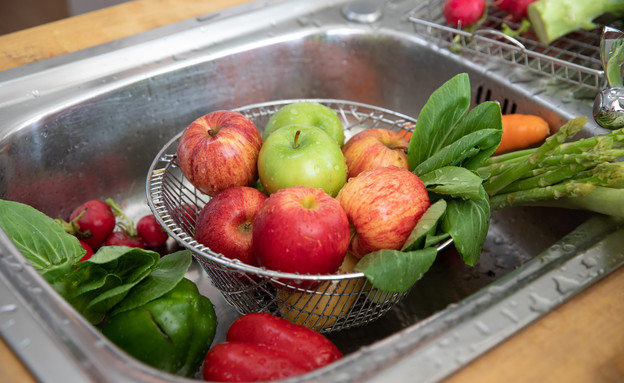A study recently published in the journal Nano Letters of the American Chemical Society, emphasizes that washing with water alone is not enough to remove the pesticides. The researchers found that water alone cannot completely remove pesticides. The conclusion, then, is that Peeling fruits and vegetables is the best solution for removing most pesticide residues. Professor Dongdong Ye, a research partner, explains that “the peeling action can effectively remove almost all pesticide residues, contrary to the common recommendation for washing.”
Dr. Brian Kwok La, food scientist and author of the book “150 Food Science Questions Answered”, claims that most of the pesticides remaining on the peel are fat-soluble, which makes it difficult to remove them during normal washing. He explains that most commercial plants already wash their produce Before distribution and sale, but this is not always enough to remove the pesticides, according to him, additional treatments such as peeling, washing with certain substances and soaking can remove most of the pesticides. Other methods include pickling and fermentation, which with the help of microorganisms and acids, break down the pesticides into insoluble molecules. Harmful over time. Dr. La recommends soaking the agricultural produce in water with salt/baking soda or vinegar.
As a clinical dietitian, it is important for me to emphasize that it is not recommended to give up fruits and vegetables in the daily menu, but to take steps to reduce exposure to the pesticides they contain. Moreover, it should be remembered that the skins of many vegetables and fruits contain most of the dietary fibers important for the health of the body and some of these fibers are used as “fuel” for the microbiome (our intestinal bacteria), without which the body’s systems will function less well and we will be exposed to more diseases.
The recommendation, therefore, is not to peel the fruits and vegetables, but to soak them in water with salt, vinegar or baking soda – as recommended by Dr. La. This is to enjoy the health nutritional benefits of their skins. A combination of awareness and proper handling of vegetables and fruits will help reduce exposure to harmful substances and preserve about our health. By following these simple rules, you can continue to enjoy the many health benefits of fruits and vegetables, while reducing the risk of exposure to pesticides. This way we will maintain a balanced and healthier diet.
Yordan Nagelstein, is a senior clinical dietician at the Beit Levinstein Rehabilitation Center and at the General Hospital of Sharon District – Samaria
